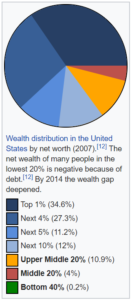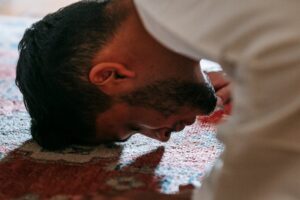Zakat is a charity – a very special kind of it. It is designed to help the poor and needy members of the society, and more importantly, to do it in a way that influences positively the social order. The Zakat system reflects Allah’s (swt) wisdom.
Let’s be clear – the primary reason Muslims give Zakat is to comply with Allah’s (swt) ordinance. It is similar to other ordinances of performing the prayers, fasting or performing the Hajj, which have all been designated by the Prophet (S) as the Pillars of Islam. Zakat’s importance is evident also because it is mentioned more than thirty times in the Quran. Allah (swt) describes great rewards for those who give Zakat in many places in the Quran, such as [2:261], and warns of consequences for those who ‘niggardly cling on’ to the wealth [3:180].
Zakat seeks to establish a positive relationship between the giver and receiver of charity. It applies to the wealth of the giver, not to his/her income. After the wealth has been with a Muslim for one full year, he/she removes a small part of it as Zakat/charity. This is required of a Muslim without even knowing who needs the charity. The receiver of charity accepts it as his/her right under the circumstances. There is no sense of favor generated in the giver nor a sense of obligation in the receiver.
Zakat is a centrally organized activity in an Islamic state. Even Muslims living in a non-Islamic state are urged to organize Zakat centrally. It is amazing and noteworthy that, to make central administration possible, Allah (swt) Himself has spelled out that the administrators of Zakat can be paid from the Zakat funds [9:60]. The central administration also enables anonymity between the giver and the receiver. Central Zakat systems are established in many of the Muslim states such as Pakistan, Malaysia and several Middle Eastern states. In non-Muslim states, such as England, South Africa and Australia, Muslim communities have also established central zakat systems, as has the Chicago Muslim community under the name “Zakat Chicago”.
One might ask, is Zakat effective in resolving the needs of the poor and unfortunate? Historical accounts suggest that it did in peaceful times. Today’s data is not available from Muslim countries to answer the question. Wealth distribution and poverty data, however, is available from many developed countries. Let’s see how our country America, for example, would fare if all Americans gave charity in the amount of 2.5% of their wealth. Below is a simplified calculation.
By Mohammed Kaiseruddin
Mohammed Kaiseruddin is the current Chairman of Zakat Chicago, a Committee of CIOGC, established to establish Zakat as a living institution in Chicago.





